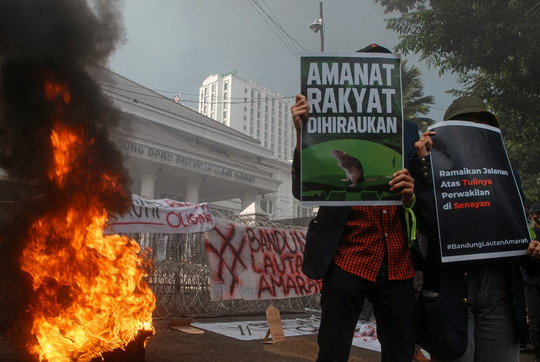The Indonesian government submitted the latest draft of the criminal code to the House of Representatives on July 6 for a closed door deliberation of the bill, which could be passed before the end of July.
According to Indonesia’s Journalists Safety Committee (KKJ), comprised of nine media freedom organisations including AJI, SINDIKASI and Amnesty International Indonesia, there are at least 14 articles in the draft code that threaten press freedom and freedom of expression.
The draft still lists defamation against the president and vice president as punishable by a maximum of three and a half years imprisonment, despite the revocation of similar laws by the constitutional court in 2006.
Other controversial aspects of the bill include articles on slander against authorities and state agencies, freedom of assembly, the spread of misinformation, and treason. Article 273 contains provisions to criminalise the organisation of peaceful protests, punishable with fines and up to six months imprisonment. Journalists could also face prison sentences of up to two years for publishing incomplete stories.
Since drafting began in 2015, critics have labelled the process ‘elitist and secretive lawmaking’ with civil society given limited access to updated drafts. A coalition of students and civil society groups have repeatedly pushed the government to release the complete draft revision.
AJI said the deliberation process must allow for public participation to ensure that the draft guarantees press freedom, civil freedom, freedom of expression, freedom of assembly, and association, which is protected by the Indonesian constitution.
AJI said: “AJI demands the legislative body to not rush to ratify the criminal code before access to the public and also the protection of press freedom are fulfilled.”
The IFJ said: “Indonesian parliament must not pass the draft legislation without appropriate consultation and transparency in the deliberation process. The IFJ urges the government to remove all articles in the draft criminal code that threaten freedom of expression and freedom of the press and ensure the protection of the rights of media workers.”

